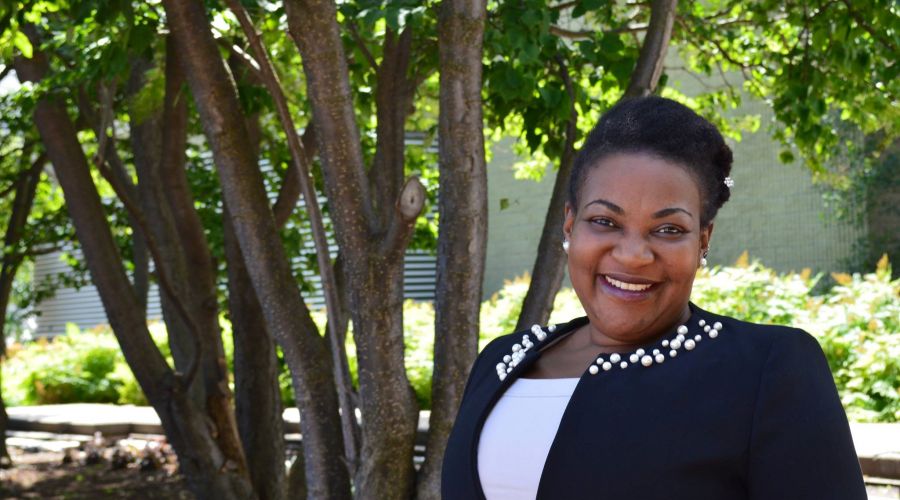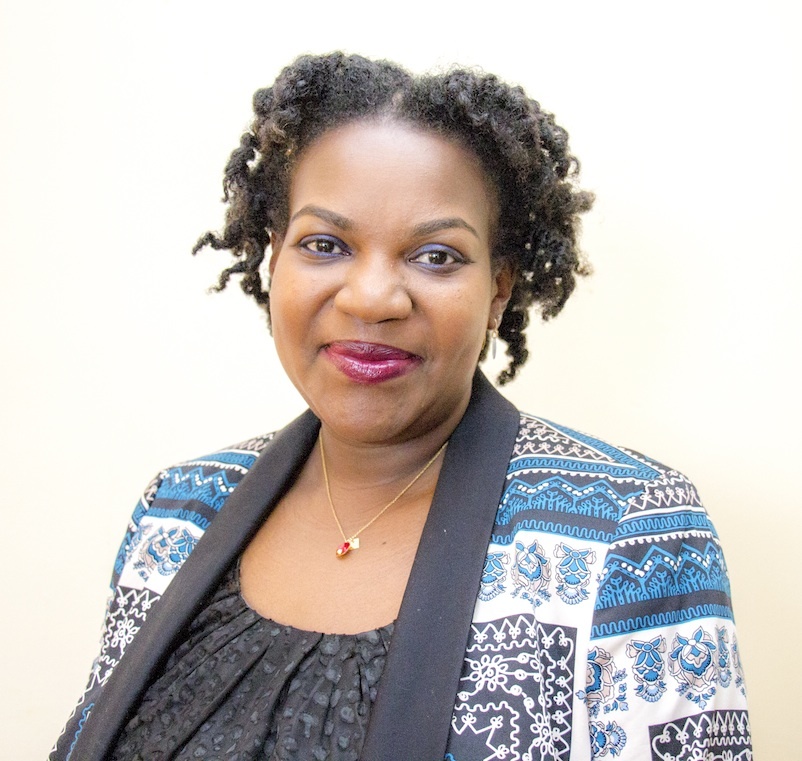
Alice Musabende is named this year's winner of the Bill Gates Sr. Prize, nominated by her peers.
Alice is a brilliant scholar tackling challenging, sensitive and impactful issues around the relationship between African and international political actors.
A Gates Cambridge Scholar who is researching the role of policymakers in rebuilding countries which has suffered mass atrocities has won the 2020 Bill Gates Sr. Prize which recognises her outstanding research and social leadership.
Alice Musabende [2016] has been selected for the prize which was established by the Gates Cambridge Trustees in June 2012 in recognition of Bill Gates Sr’s role in establishing the Gates Cambridge Scholarships, being a Trustee and engaging with, and inspiring, many generations of Gates Cambridge Scholars.
The Award, announced to the Trustees on Friday, allows Scholars to recognise the impact and contribution to the Scholar community of one of their peers, with particular reference to the Scholarship’s selection criteria. Scholars are asked to nominate a fellow Scholar for the Award by completing a statement about why that Scholar would be a suitable recipient. Selection was on the basis of how well the nominated candidates met the selection criteria while in residence in Cambridge. It is the fifth year running that the award has been presented.
Alice is doing a PhD in Politics and International Studies. Her research focuses on the role of global governance in rebuilding countries emerging from conflicts and mass atrocities, with an emphasis on how the African Union negotiates its relationships with external actors such as the EU and the UN.
She has spoken at a variety of conferences, including the Cambridge Festival of Ideas, where she presented on the role of technology in rebuilding post-conflict states, and at Friends of Europe where she spoke about the role of peacekeeping in the prevention of conflict and mass atrocities. She has also been interviewed on panels and podcasts, and shared her insight, perspective and academic research with a broad audience both within Cambridge and beyond, including at the British Parliament where she spoke about the role of international media in the 1994 Rwandan genocide against the Tutsis. As a survivor of this genocide, she has worked tirelessly to raise awareness about it.
Alice has two master’s degrees in International Development Studies and in Journalism. Before coming to Cambridge, she worked as a journalist in Canada for broadcasters including the CBC and Radio-Canada.
Alice, who is a single parent to two young boys, has also been an active participant in the Gates Cambridge community, organising events and support groups for scholars with families.
Nominators praised her research excellence, her willingness to disseminate her research to a broad audience and her leadership as a single mother who arrived alone in the UK with two young boys to take up her studies.
One nominator said: “I can’t think of a person more deserving of this award than Alice Musabende, whose tenacity, compassion, intellect and courage set her apart. Alice is a brilliant scholar tackling challenging, sensitive and impactful issues around the relationship between African and international political actors.”
Praising her leadership qualities, another said: “Alice leads by example, serving as an inspiration to her friends, colleagues and audiences. Those who don’t know Alice well would likely never guess the responsibilities and passions she juggles. Those of us who do know her well are in awe, not only that she manages to contribute so much, but that she does so with such compassion, determination and intellectual courage. Alice has made clear throughout her time as a Gates Cambridge Scholar that wherever she goes from here, it will be toward building robust and diverse collaborations among people with the drive and capability to make the world a better place.”

Alice Musabende
- Alumni
- Rwanda
- 2016 PhD Politics & International Stud
- Murray Edwards College (New Hall)
I was born and raised in Rwanda, and when I was 14 years old my family was killed during the Rwandan genocide against the Tutsis of 1994. Although I was too young to understand its roots, this tragedy would forever shatter my life and shape the person I would become. I graduated from Rwanda’s first School of Journalism and I hold a Master’s in Journalism from Carleton University. I have worked as a journalist in Canada’s major news organizations. I am currently completing a Master’s in International Development Studies from Dalhousie University and have previously worked as an international development worker in Rwanda. At Cambridge, I will be researching further the dynamics of peacebuilding in the context of post-conflict countries in the Great Lakes of Africa, by investigating ways through which international organizations navigate the normative crosscurrents that come with peacebuilding. Centered around the issues of democratization and democratic recognition, this research seeks to explore how international actors respond to post-conflict countries when they express a strong wish to articulate the agenda, the levers they have as well as ways in which they use them. Ultimately, I seek to contribute my perspectives as an African scholar to a better understanding of peacebuilding on the continent and in the world.
Previous Education
Carleton University
Université Nationale du Rwanda
Dalhousie University












